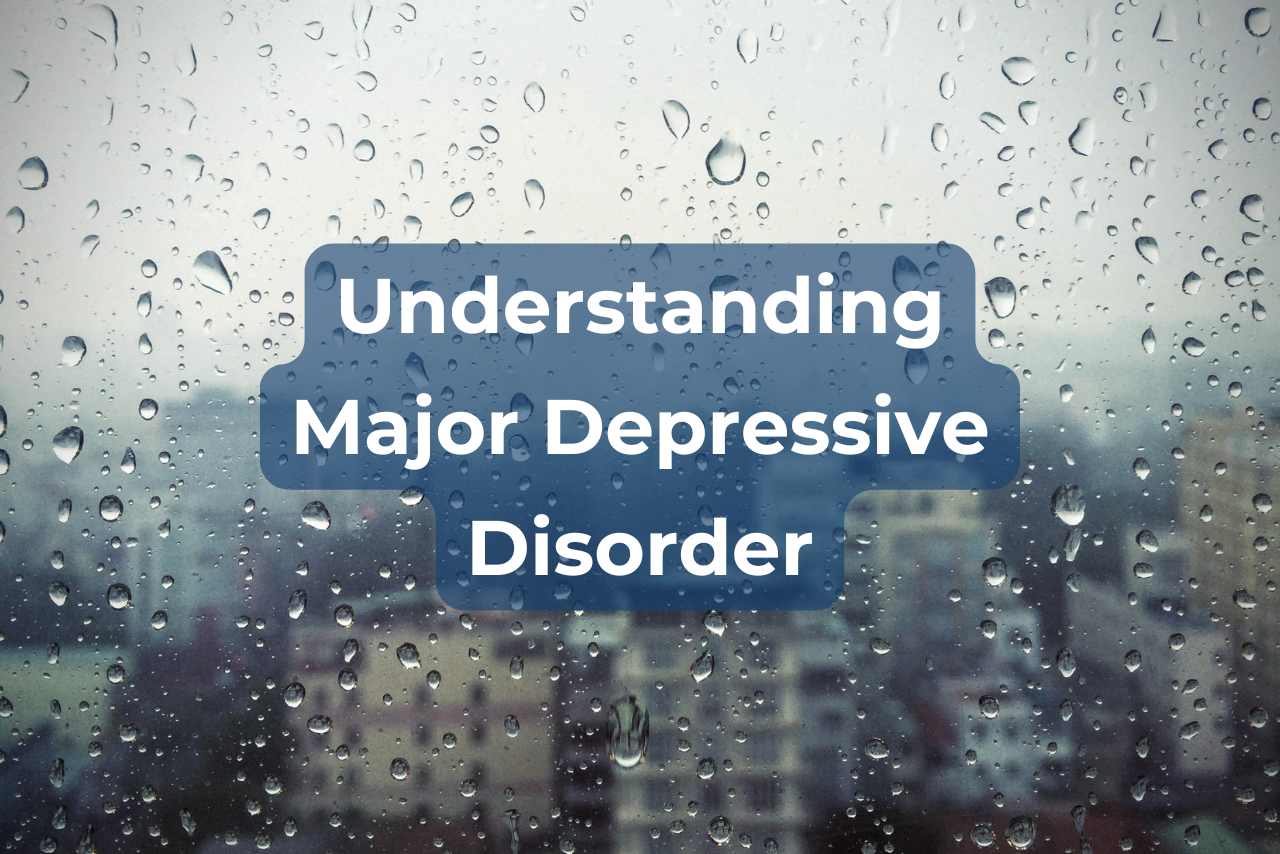Understanding Major Depressive Disorder

Understanding Major Depressive Disorder
Major Depressive Disorder (MDD) is one of the most common forms of depression, ranging in severity and characterized by persistent and pervasive symptoms that interfere significantly with daily functioning. It is more than occasional sadness or grief; MDD is a clinical condition requiring professional evaluation and treatment.What is Major Depressive Disorder?
MDD is defined by episodes of depressive symptoms lasting at least two weeks. These episodes involve a range of emotional, physical, and cognitive disturbances, making it difficult for individuals to carry out everyday tasks. For some, MDD occurs as a single episode; for others, it recurs throughout their lives.Symptoms of Major Depressive Disorder
While the symptoms can vary in severity, the most common include:· Persistent feelings of sadness, hopelessness, or emptiness.
· Loss of interest in activities once enjoyed (anhedonia).
· Significant changes in appetite or weight.
· Sleep disturbances, such as insomnia or hypersomnia.
· Fatigue or lack of energy.
· Difficulty concentrating or making decisions.
· Feelings of worthlessness or excessive guilt.
· Thoughts of death, self-harm, or suicide.
A diagnosis of MDD may include only some or all of these symptoms, and the symptoms experienced collectively impair social, occupational, and personal aspects of life.
Causes and Risk Factors
The exact causes of MDD are complex and multifactorial. Potential contributors include:· Biological Factors: Imbalances in neurotransmitters like serotonin, norepinephrine, and dopamine.
· Genetics: A family history of depression increases vulnerability.
· Psychological Factors: History of trauma, loss, or childhood adversity.
· Environmental Factors: Stressful life events, social isolation, or financial difficulties.
· Chronic Medical Conditions: Disorders like diabetes, heart disease, or thyroid dysfunction often co-occur with depression.
Understanding these factors can help tailor prevention and intervention strategies.
Diagnosis
Diagnosing MDD involves a thorough evaluation by a healthcare professional. Criteria from the Diagnostic and Statistical Manual of Mental Disorders (DSM-5) guide the process, ensuring accurate identification of symptoms and ruling out other causes, such as medical conditions or substance use.Treatment Options
Treating MDD is often a collaborative effort involving multiple modalities:Psychotherapy:
Cognitive-Behavioral Therapy (CBT): Helps individuals identify and modify negative thought patterns.Interpersonal Therapy (IPT): Focuses on improving personal relationships and coping with life stressors.
Medications:
Antidepressants: Such as SSRIs, SNRIs, or tricyclic antidepressants, can help correct chemical imbalances in the brain.Lifestyle Changes:
Regular physical activity, a balanced diet, and adequate sleep play significant roles in symptom management.Alternative Treatments:
Some experience symptom relief with techniques such as mindfulness, meditation, and yoga.In specific cases, electroconvulsive therapy (ECT) or transcranial magnetic stimulation (TMS) may be considered.
Seeking Help
MDD is a treatable condition, and early intervention is key to recovery. If you or someone you know is experiencing symptoms of MDD, seeking professional assistance can provide relief and strategies for coping effectively.Disclaimer: The information provided in this article is for educational purposes only and should not replace professional medical advice. The content is not intended to be a substitute for professional diagnosis, treatment, or care. Always seek the advice of a qualified healthcare provider with any questions you may have regarding antidepressant medications or any other medical condition.
Affiliated Medical Group providers are available to provide personalized guidance and recommendations based on your specific needs. If you require further assistance or wish to schedule an appointment, please call (910) 939-0724 to consult with one of our experienced healthcare professionals. Your mental health and well-being are our top priorities, and we are here to support you on your journey toward better mental health.
